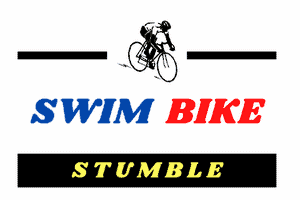Good to Go: What the Athlete in All of Us Can Learn from the Strange Science of Recovery by Christie Aschwanden covers a baffling array of recovery treatments, supplements, trackers, and devices confronting today’s athletes. Aschwanden has a solid background in both endurance sports (runner, cyclist, skier) and science.
Test your athletic recovery knowledge!
Take the quiz below.
In the book, she manages to weave together research, anecdotes, history, and interviews into a narrative that is insightful and never boring. She tried out quite a few of the recovery modalities herself including cryotherapy, float tanks, and the Muse meditation headband. Good to Go covers an impressive amount of recovery modalities, technologies, and strategies.

In her chapter, The Perfect Fuel, she introduces us to studies that indicate your body doesn’t seem to care whether it’s fueled by fast food or energy bars and that nutrient timing is not the big deal we once thought it was. BTW, as far as pre- and post-workout snacks go, the NBA likes PB&J.
The chapter, Calming the Senses, covers stress and ways to cope with it. Topics include float tanks, meditation apps, and the Muse meditation headband. At least one study regarding float tanks suggests this modality reduces blood cortisol levels and perceived muscle soreness, and improves mood. Unfortunately, the cost and availability of float tanks may limit benefits for many athletes.

In Selling Snake Oil, the author discusses the unregulated nature of the US supplement industry and the poor quality of evidence supplement makers often cite in promoting products. The most important takeaway is that the FDA has no authority to require supplement manufacturers to demonstrate the safety or effectiveness of their products. So, buyer beware.
Aschwanden’s Interview on NPR’s Fresh Air
The Rest Cure, covers, sleep, the most effective recovery tool known to science. There’s a lot of great information in this chapter. Two points about sleep seemed particularly important: missing even an hour of sleep cost you more than you think in terms of performance and professional athletes take sleep very seriously.

Fun fact: In the book, Aschwanden mentions two athletes who hold records for running marathons in costume. One, dressed as Elvis and the other as Spiderman. This means that I’m one marathon, one costume, and one obscure Saturday morning cartoon character away from a record. I’m thinking Tennessee Tuxedo. (Keep this between us.)
Grab a copy now!
(Please note that the above link is an affiliate link and sales made through it will reward me a small commission – at no extra cost for you.)
Recommendation: Good to Go is highly recommended. Whether you are a novice when it comes to athletic recovery or a veteran athlete who has tried it all you will find solid up-to-date information that will allow you to make more informed decisions about where you want to spend your recovery time and money.
Spoiler alert, start with making sure you’re getting enough sleep, become more aware of the stress in your life and how you’re dealing with it, and then worry about other recovery techniques and products.
Good to Go’s Rating: 5 of 5
Now take our Good to Go Athletic Recovery Quiz!
#1. One of the best ways to deal with a stressful situation you can't avoid is to:
#2. Which of the following studies would be the most likely to provide reliable results?
#3. When Amby Burfoot won the 1968 Boston Marathon how many aid stations with water were there on the course?
#4. Procedural memories important for sports involving motor or cognitive skills are enhanced during:
#5. One of the consequences of poor stress management for athletes is:
#6. A study where volunteer were tested after receiving either doses of alcohol or sleep deprivation showed:
#7. What is the best protein consumption strategy to maximize strength gains?
#8. At the 2008 Olympics in Beijing, Usain Bolt earned three gold medals on a diet that consisted mainly of:
#9. Which stress management technique is a poor choice for most athletes?
#10. A major motivation for athletes to take supplements is FOMO which stands for:
If you like this post please share it. Use the social share icons below.
Have any stories about recovery techniques that you tried despite there being very little evidence for them? Mine was ice baths. If so, comment on the blog.
Have a topic you want to see covered in a future post? e-mail me I’m alfred@swimbikestumble.com.
Follow my manic musings on Twitter @swimbikestumble and check out the swimbikestumble Facebook page for credible, interesting, or thought-provoking items. Also sign up for the monthly newsletter below.





